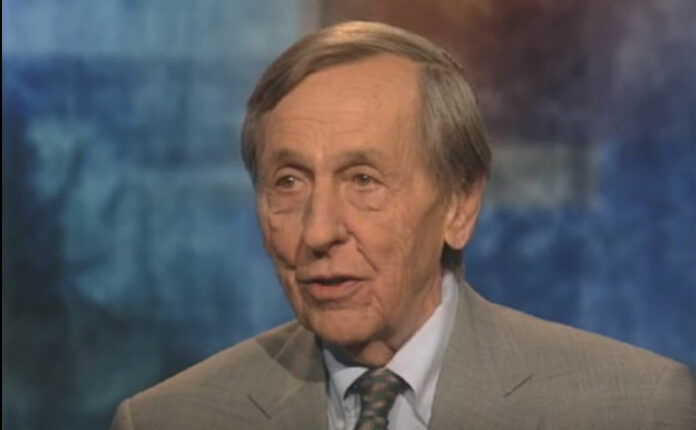Back in 2013, when a group of us were kicking around ideas for what would eventually become the Intercept, I reached out to some of the journalists I respected the most to get their thoughts about what we should do.
One of those people was Bill Greider, the longtime political writer, author and then-Nation columnist, who always found uniquely insightful, entirely bullshit-free ways of explaining how things really work in Washington, i.e. to the benefit of the rich and powerful.
Greider died on Christmas Day, at age 83. In the obituary in the New York Times, his son wonderfully captured the combination of cynicism and idealism that fuels so many of the political writers I admire the most: “He was disaffected from the day-to-day mechanics of politics,” Cameron Greider said, “but he was never disaffected from the notion that America could live up to its promise.”
Just today, I stumbled across the notes I had taken of our 2013 interview, and I wanted to share them.
What’s the best, most fearless, most honest way to write about politics and national security, I asked him.
He said the key is to write for the general public, nor for sources.
“Talk straight out to the people instead of to the assholes who are in power,” he told me.
“The elite Beltway media believes that governing can really only be understood by certain elites, and therefore you have to speak to them if you want influence,” he said. Even worse, the “media elite see itself as part of the governing elite. The press no longer identifies with the people. They identify with the people in power.”
Writing for ordinary people can be challenging, though. “How do you speak in language that ordinary people can understand, and use, but not talk down to them?” he asked.
Back in the 1980s, Greider had famously walked away from his highly prestigious job as assistant managing editor of the Washington Post to join Rolling Stone. It was both a huge fuck-you to the Washington elite media and an indication of the importance he placed on writing about politics for a general (and younger) audience.
At Rolling Stone, he told me, he “built into every story context and history, without talking down.” He wrote “authoritatively, without apology, or burying the lede.”
Doing that also requires expertise: “It actually takes deep reporting to be able to write about things like the Federal Reserve in plain English,” he said. It’s always much easier to use the elite’s “opaque phrasings.”
As for how journalists can stay close to the people when they so often choose to live in rarefied urban environments, Greider suggested being in frequent touch with community groups that are intentionally disconnected from the political apparatus, and that focus on community concerns.
And the message to the public should be clear: “We’re the troublemakers standing with the people and we don’t take any position beyond that,” he said.
Journalists should be “permanent skeptics” like the old muckrakers — not like the jaded elite press — and “tell the stories in ways that people will recognize as true.”
[Read some appreciations of Greider from Jim Fallows, Dean Baker, Jim Lardner, John Schwarz, John Nichols, and Katrina vanden Heuvel.]

William Greider: “It actually takes deep reporting to be able to write about things like the Federal Reserve in
plain English,” he said. It’s always much easier to use the elite’s “opaque phrasings.”
Beltway Media: WORK?
(Maynard G Krebs on Many Loves of Dobie Gillis)
https://www.youtube.com/watch?v=bvnhodcB62g
There should be little wonder why the ‘national’ news organizations only cover Washington and New York. It’s easy, cheap to cover, and desirable destinations to have on your resume. It’s not because there’s no news in, I don’t know – eastern Washington State? (People, pay attention to that because the news media isn’t.) At least WaPo has been running features on the farming crisis in flyover country – and we need to hear a lot more from the places that provide our food and possess some important electoral votes. Of course, the Rolling Stone is an elite organization in an elite city covering an elite creative industry with a stable of elite writers with creative license (Greider upgraded). So there’s that. It’s not like he moved to Minneapolis or St. Louis – we need some William Greiders in all parts of the country in the lands between our mountain ranges.